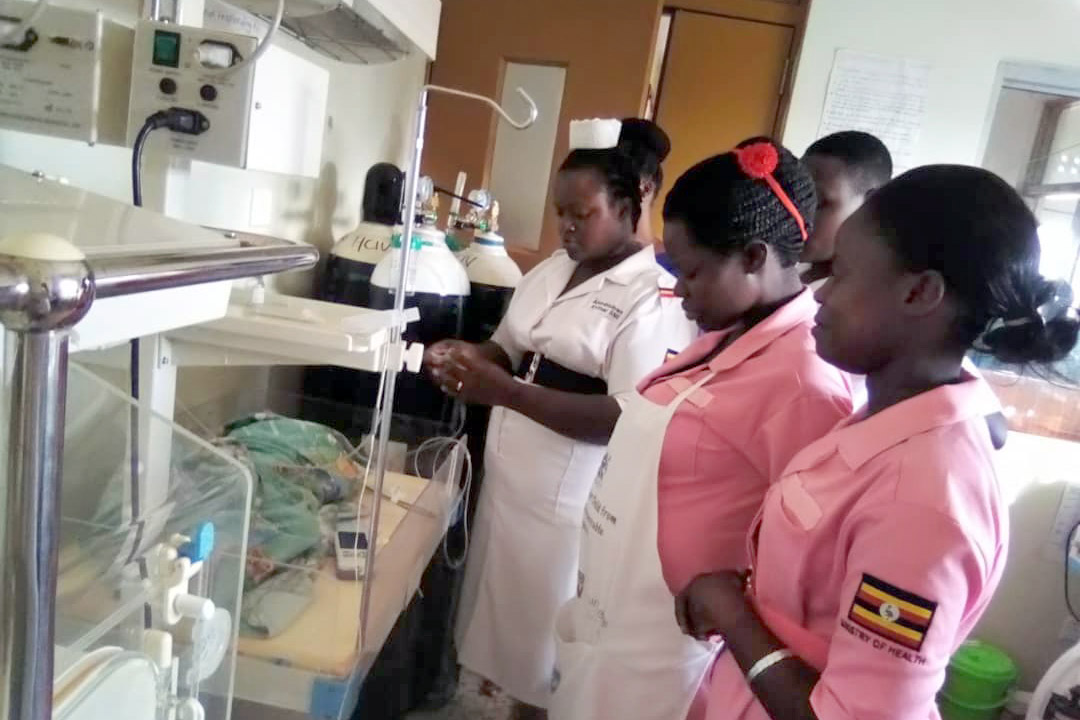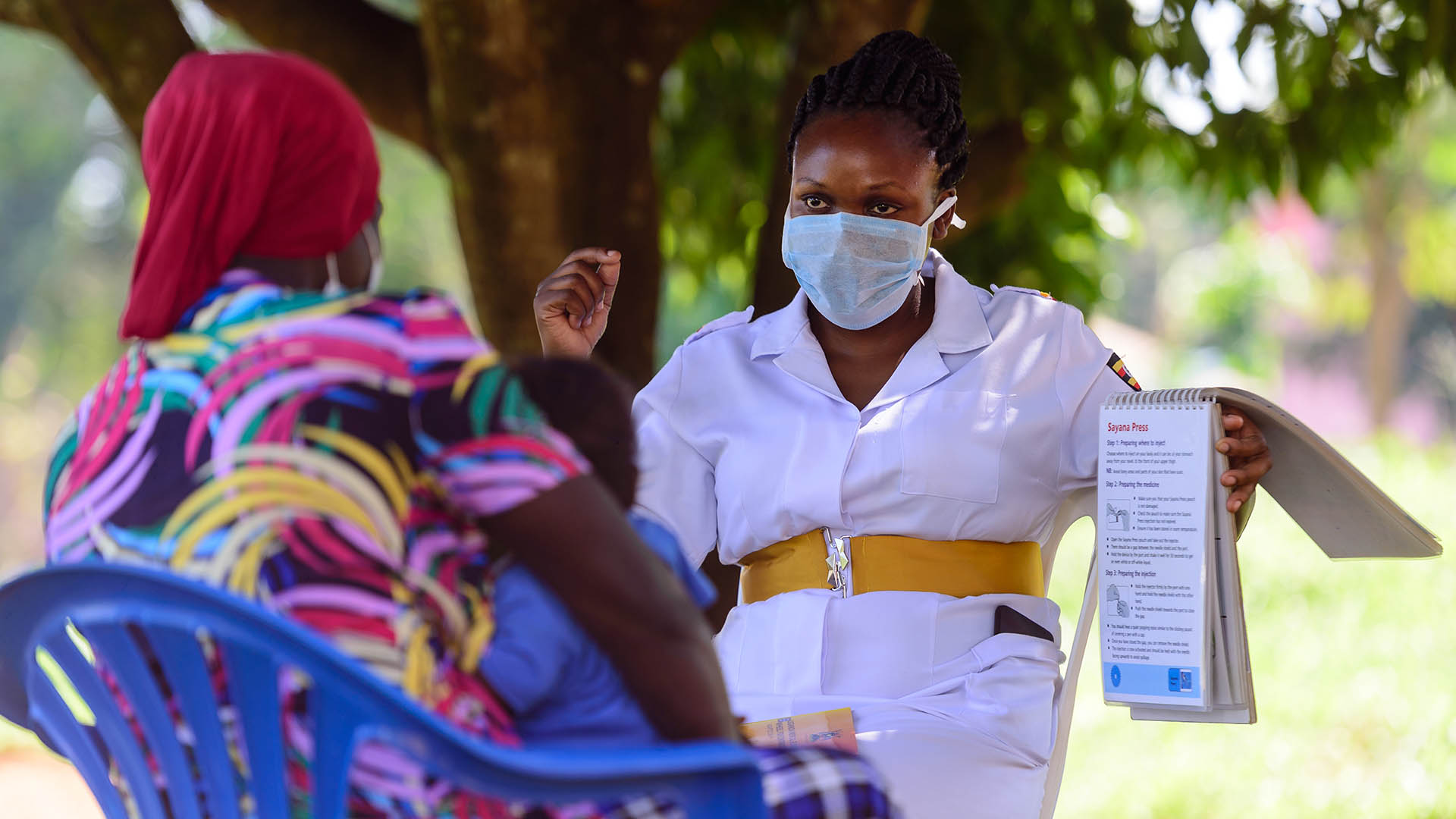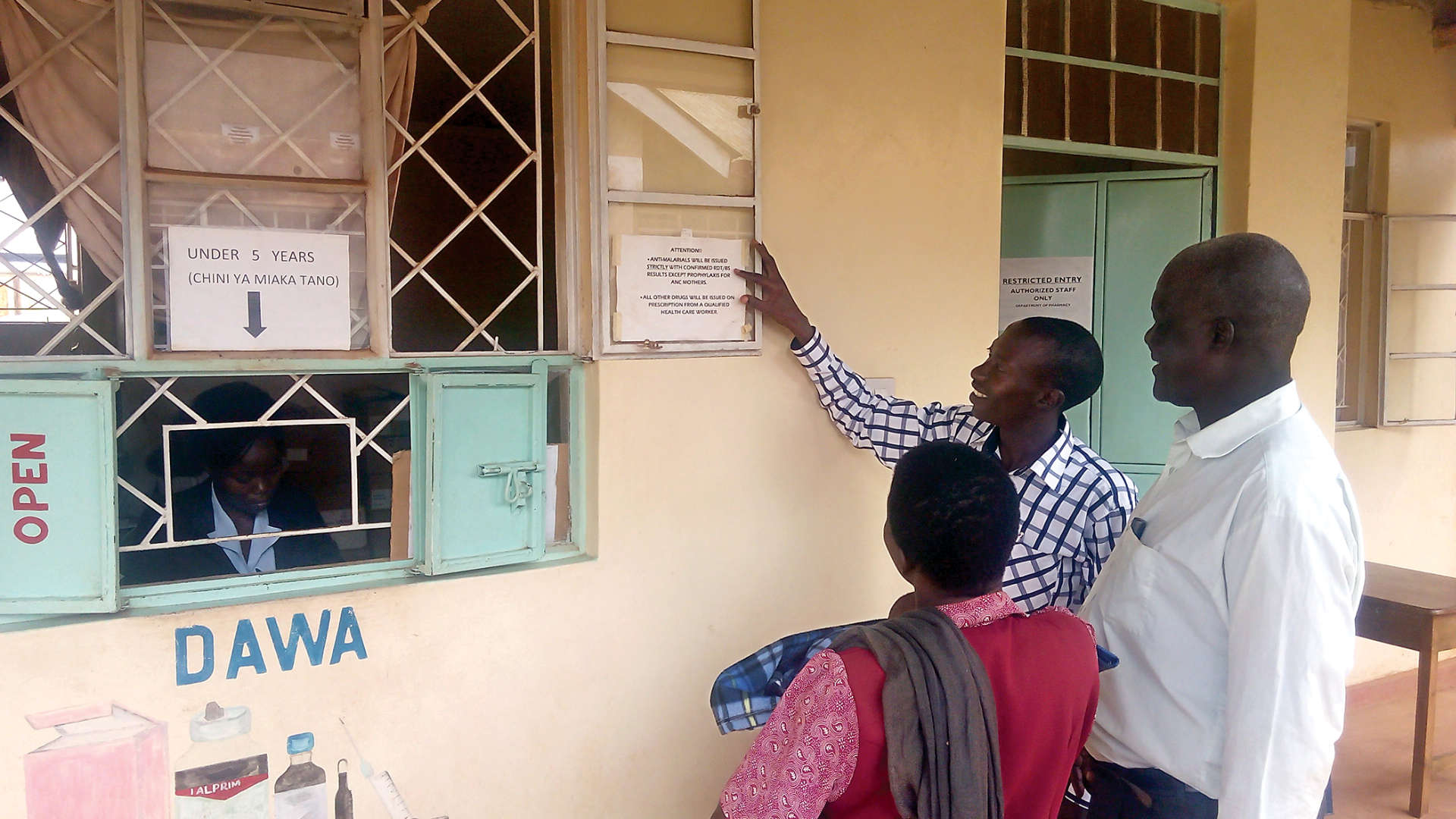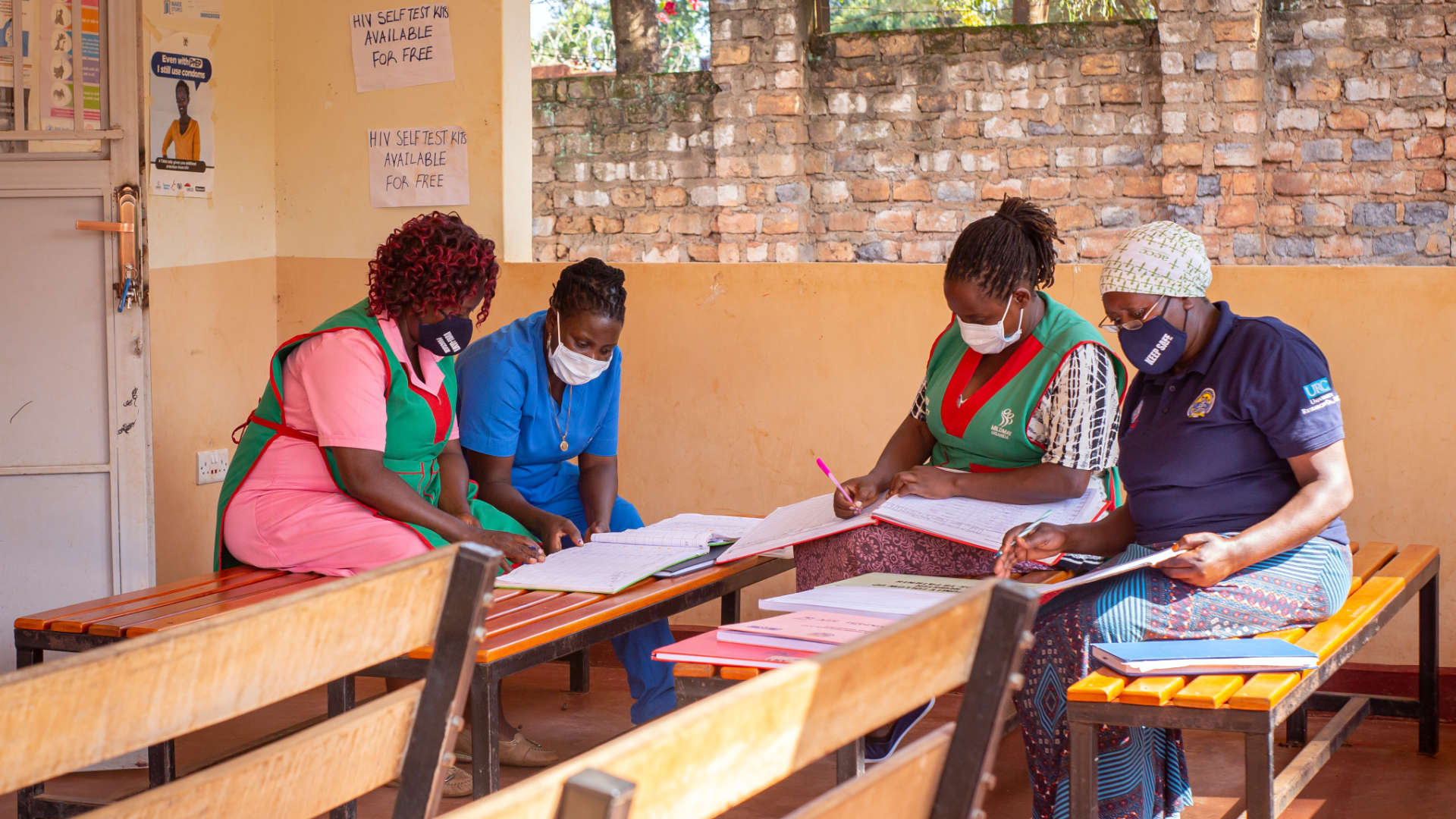Jalia Nassolo, 32 – a resident of Kiyunga in the Luuka District of Uganda – had a complicated pre-term birth delivery.
At 37 weeks of pregnancy, Jalia started to experience labor pains, which quickly increased in frequency and severity. Concerned, she sought care at the private community clinic, where she received antenatal care services.
“While there, I went into labor, and everyone panicked. We did not expect to deliver at this time because I still had about three weeks before my due date,” said Jalia.
At the clinic, Jalia’s blood pressure measured very high, a condition not previously experienced. A urine test revealed elevated levels of protein, which – coupled with high blood pressure – led Jalia’s midwife to diagnose her with pre-eclampsia, a potentially fatal complication. To save Jalia and her baby’s life, Jalia’s blood pressure would need to be controlled immediately.
The community clinic was not able to handle a complicated delivery associated with pre-eclampsia, so Jalia was referred to the nearby, larger, government health facility, Kiyunga Hospital and Health Centre IV (HCIV). Its neonatal unit was well-equipped, with trained midwives and the medications needed to manage pre-eclampsia.
“Jalia came with a referral note which showed that she was in active labor with very high blood pressure,” said Lydia Mbwaali, a midwife at Kiyunga HCIV. “We immediately admitted her and put her on treatment to lower the blood pressure. This enabled her to have a safe cesarean section delivery that very day.”
Committees Audit Maternal Deaths, Identifying Gaps in Care
Mbwaali is one of the midwives at Kiyunga HCIV who received training on the identification and management of danger signs during pregnancy and childbirth. She regularly participates in mentorship sessions and maternal and perinatal deaths surveillance response (MPDSR) committee meetings with other midwives.
The URC-led USAID Regional Health Integration to Enhance Services in East Central Uganda Activity (USAID RHITES-EC) supports Kiyunga HCIV and other health facilities with maternity wards in the East Central Region to convene monthly MPDSR committee meetings. During the meetings, recent maternal and perinatal deaths that occurred at health facilities are audited to identify gaps in the services and care provided. Recommendations are made and steps initiated to improve quality of care and prevent future deaths.
“When we realized that most causes of near death were related to inconsistent supply of oxygen, we purchased oxygen cylinders,” said Bateganya Magala Charles, a clinical officer at Kiyunga HCIV. “We already had oxygen concentrators, but these require electricity, which is not constant. We thus supplemented the oxygen concentrators with the oxygen cylinders to ensure that oxygen is always readily available.”
RHITES-EC also supports facilities with continuous mentoring on MPDSR. Facility staff, including midwives, are encouraged to keep records of all pregnancy-related cases to identify and address gaps.
Improved Management of Complicated Pregnancies
Throughout the East Central Region, RHITES-EC works to strengthen the effectiveness of MPDSR committee meetings. Teams review MPDSR guiding principles and committee member composition, support collaboration between the maternal and child health team and the facility records team to improve timely and accurate reporting. Efforts focus on ensuring committee recommendations translate into actionable activities.
“During the MPDSR committee meetings, we remind ourselves of the danger signs to look out for and what to do to save the lives of both mother and child,” Mbwaali said.
RHITES-EC has supported health facilities in the East Central Region of Uganda to improve the proportion of maternal deaths audited from 26% in 2016 to 98% in 2020. These activities have contributed to a significant reduction in the East Central Region’s institutional maternal mortality rate, from 368 per 100,000 live births in 2016 to 91.8 in 2020.
Jalia and her baby benefited from the rapid response of the health teams and are living healthy lives without any long-term complications from pregnancy or childbirth.



